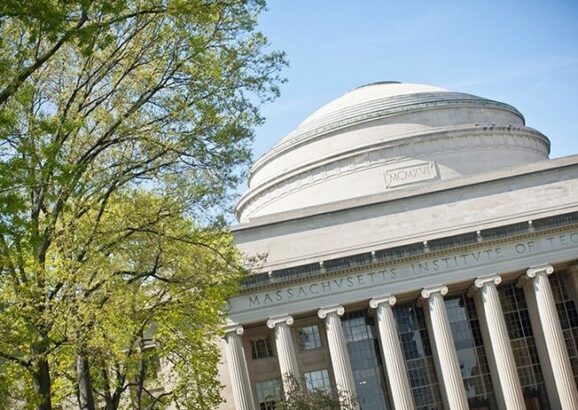Tracy Slatyer
Research Interests
Prof. Slatyer is a theoretical physicist who works on particle physics, cosmology and astrophysics. Her research is motivated by questions of fundamental particle physics — in particular, the nature and interactions of dark matter — but she seeks answers to these questions by studying possible signatures of new physics in astrophysical and cosmological data. Her particular areas of focus include research into scenarios where the dark matter experiences new forces of nature, precision theoretical predictions for photon signals from heavy colliding dark matter particles, modeling of the possible effects of dark matter interactions on the history of the early cosmos, and hands-on data analysis of high-energy gamma-ray data in search of dark matter signals. She was a co-discoverer of the giant gamma-ray structures known as the “Fermi Bubbles” erupting from the center of the Milky Way.
Courtesy of Quanta Magazine | YouTube
Biographical Sketch
Tracy Slatyer was born in the Solomon Islands and grew up in Australia and Fiji. She completed her undergraduate work with honors in theoretical physics at the Australian National University in 2005 and her doctoral work in physics at Harvard in 2010 under the direction of Prof. Douglas Finkbeiner. Prof. Slatyer was a postdoctoral researcher at the Institute for Advanced Study in Princeton from 2010-2013, and joined the MIT Physics Department as a junior faculty member in July 2013. She was promoted to Associate Professor in 2018 and received tenure in 2019.

Four from MIT awarded 2021 New Horizons in Physics and New Frontiers in Mathematics prizes
Physicists Tracy Slatyer and Netta Engelhardt and mathematicians Lisa Piccirillo and Nina Holden PhD ’18 are honored by the Breakthrough Prize Foundation.
Awards & Honors
- 2022 // 2022 Simons Investigator Award
- 2021 // New Horizons in Physics Prize for Early-Career Achievements in Physics and Math (Breakthrough Prizes) “for major contributions to particle astrophysics, from models of dark matter to the discovery of the ‘Fermi Bubbles’.”
- 2019 // Presidential Early Career Awards for Scientists and Engineers (PECASE)
- 2018 // Buechner Special Teaching Award, MIT
- 2017 // Teaching Prize in Graduate Education - (Relativistic Quantum Field Theory I), MIT School of Science
- 2017 // Henry Primakoff Award for Early-Career Particle Physics (APS) "For innovative theoretical calculations and data analyses of the multi-wavelength sky to probe the nature of dark matter."
- 2017 // Future of Science Award, MIT School of Science
- 2017 // Teaching with Digital Technology Award, MIT
- 2017 // Everett Moore Baker Memorial Award for Excellence in Undergraduate Teaching, MIT
- 2016 // Graduate Teaching Prize, MIT School of Science
- 2015 // DoE Early Career Research Award
- 2015 // Buechner Faculty Award for Undergraduate Advising, MIT
- 2014 // Bruno Rossi Prize, American Astronomical Society